STTP vs. Sodium carbonate?
Ok, I've been reading the posts about using additives for enhanced cleaning.
What is the main difference or abilities of these 2 chemicals? Do they need to be used together?
I don't wash many white items, most are black or dark in color. That being said, I don't want something to dull the dark clothing prematurely.
I'm using TJ's Next to Godliness powder and notice very few suds if any. Tried increasing the dose and no difference. Thought if I added one of the above ingred. it might boost the performance. Any thoughts?
Oh and regarding purchasing these, washing soda is hard to find anymore and does Smart and Final carry STTP? Thinking the Chemical Supply Store might be costly due to shipping.
Does Charlies Soap have good ingredients? I need to use detergents that rinse out well.
Thanks for your patience and posts!
Comments (37)
sshrivastava
18 years agoIf you want clean clothes, stick with a detergent that contains enzymes -- Tide HE, Cheer HE, ecoVantage, Persil, Bi-O-Kleen, Sears Ultra HE, etc. Detergents such as Charlie's Soap, Country Save, and similar do not contain enzymes and will not perform as well.
With that said, for darker clothes I'd stay away from Tide HE as it has been reported to fade colors, and also stay away from anything with an oxygenated bleach (ecoVantage, Persil, and some varieties of Sears). That pretty much leaves Cheer HE as the default option, however you can make any detergent "color safe" by adding about 250 mg of ascorbic acid (vitamin c) powder to neutralize the chlorines/chloramines in your front-loader's wash water.
STPP serves as a non-precipitating water softener and soil suspender, which is great if you have hard water, otherwise you won't get much benefit from this. Sodium carbonate is also a water softener which can serve as a general detergent booster, but STPP will most likely be more effective.
STPP is a phosphate.
bookert
Original Author18 years agoss,
I've noticed lots of detergents have oxygenated bleach, almost hard to find them w/out it! The TJ's powder even has it. Don't think TJ's has enzymes if I read the ingred. correctly.
Where do I buy the ascorbic acid in powder form? Expensive? What about the STTP? What is the going price on that? ( I don't like the high shipping costs when ordering online, so I'm wary of taking the plunge!)
I have hard well water, but have a filter at the H.W. heater. Will the STTP or S.Carbonate harm my septic tank?
Hopefully I will get some Ariel Bajaesuma in a few weeks and although it's supposedly heavily scented I'll add vinegar to the rinse. I asked some of the hispanics in the grocery store about it and they REALLY like it! Although one woman said it's real sudsy! I can't get the HE version locally though. The regular version says it's from Mexico and not made here in the US so it does have phosphates. I'll assume the He version has phosphates too? Think STTP would be needed with the Ariel?Thanks for letting me pick your brain! =)
sshrivastava
18 years agoI've used STPP in soft water (2-3 grains) and it made no difference in the wash -- at that low level of hardness, you are getting great action from your detergent and adding STPP is pretty much overkill in my opinion.
bookert
Original Author18 years agosuds and ss,
Wow, I'm sooooo out of this league!
But, that being said, I'm happy there are you smarties out there who can set me straight and enable me to learn great stuff to boot! I'm thankful how patient you all are w/ people like myself that WANT to learn, but just need some extra helping hands!
Hats off to you both! =)Recommendations on where to purchase and what to expect to pay would be appreciated.
sshrivastava
18 years agoI don't know much about chemistry -- it was my least favorite subject in school -- but most of my suggestions come from my personal experience.
As always, your mileage may vary! :)
bookert
Original Author18 years agoss,
Where do you purchase STTP? Chemistry Store is the only place I've seen that sells it online. Is that a safe site to make a purchase from?
Oh, besides taking a sample of my water to the county for testing, is there any way to test at home?sshrivastava
18 years agoI ordered mine from the Chemistry Store.
You can probably find some water test kits... aquarium supply places are usually good for those.
bookert
Original Author18 years agoss,
How much do I order? 6 or 12lb. pail?
Also, about the ascorbic acid, how much is 250 mg.? Using a teaspoon for instance. Do you use it? Like the performance?I read that sodium silicate is good for protecting washer parts from corrosion. Any comments or knowledge about that statement to share?
I would like to order all at the same time to save on shipping costs, so sorry to hit you w/so many questions at once! =)
Thanks in advance!
sshrivastava
18 years agoMost powdered laundry detergets contain silicates, so I wouldn't worry too much about that. As far as STPP goes, most people find that 1 TBS added to their regular dose of detergent seems to work fine... A 12 lb. pail should last you a good long time, even a 6 lb. pail will probably last you at least 6 mos.
As far as ascorbic acid, I've only recently made the discovery that it neutralizes chlorine and chloramine at a 50 mg per gallon dose. You can find ascorbic acid at your health food store -- it looks like sugar/salt in its powdered form -- and 1 TBS is about 1,000 mg, so 1/4 of a tablespoon should do it.
dross
18 years agosodium silicate is good for protecting washer parts from corrosion
I think that is mainly for dishwasher detergent applications. Both of the builders being discussed in this thread can leach chemicals out of glass; when silicates are added to the detergent, it acts sacrificially so that the leaching is done from the additive instead of from the glass (dishes in the case of a dishwasher, maybe glass door in the case of a clothes washer). - DR
bookert
Original Author18 years agoss,
Thanks! I'll ck out T.J.'s and Sprouts for the ascorbic acid.dross,
I'm terrible when it comes to remembering all the sites I've read from! I remember the article saying the silicate protects washer parts. Please expand about the glass door thing! Should I be wary of using additives or did I misread your post?
Thanks.dross
18 years agoShould I be wary of using additives?
I don't think so. The etching of glass in dishwashers can be a problem due to the strength of the detergent and the heat of the water, and the fact that the glass used in dinnerware is not necessarily chosen for durability. The glass used in washer doors is likely chosen to be of a composition which is resistant to these problems.
Besides the sacrificial action I describe above, in some applications the silicates can help prevent corrosion by depositing a coating, or accelerating protective passivation, eg for aluminum parts. (This is why it is in some automotive antifreeze solutions.) So, it is perfectly possible that you did indeed see it mentioned in connection with preventing corrosion in a washer. - DRsshrivastava
18 years agoecoVantage, one of the laundry detergents I use, contains "washer protection agents" which I assume are some form of silicates.
sudsmaster
18 years agoLaundry detergent powders frequently contain sodium silicates to help protect washer parts.
Its use is not restricted to dishwasher detergents.
Remember, porcelain coated steel actually has a very thin coating of glass.
sudsmaster
18 years agoSS,
I realize you are going by your personal experience. However I'm relaying information I've learned over the years, not only from my own personal experience but also from expert sources.
What the experts say: STPP performs three major functions in a laundry detergent:
1) Water softener
2) Break
3) AlkalinizerSTPP these functions without forming a precipitate when it encounters various minerals. It doesn't matter if those minerals are in the tap water or in the dirt on the laundry.
In detergents that replace STPP with sodium carbonate, it is necessary to add a anti-redeposition agent to avoid having the mineral-carbonate precipitate from being redepostied back on the laundry. So, you can add a fourth function to STPP:
4) Soil anti-redeposition agent.
Additionally, STPP is a much better break than sodium carbonate. A lot of this is due to what might be called the nano action of STPP, whereby on the molecular level its ability to keep dirt in solution means that it more readily coaxes dirt from fabrics than sodium carbonate. This is irregardless of the water hardness level.
If you don't general truly dirty laundry, and have soft water, then yes, you may never see the difference between detergents with vs. without STPP. However, even in soft water, (4 grains) I can see a huge difference between a detergents ability to remove all sorts of heavy soil and staingin from fabrics when STPP is the variable. I know I'm not alone in this observation; many others here have stated that they whites are much whiter with STPP added. In fact, that's how I first discovered the value of STPP. I noticed that my whites were no longer getting clean when my favorite detergent (Clout) dropped the use of STPP in the mid-90's.
Additionally, enzymes cannot replace all the functions of STPP, and they are basically useless against inorganic mineral-rich soiling and staining.
bookert
Original Author18 years agoThanks for the info all!
Now about the silicates. Are there silicates in both liquid detergents as well as powders? Does the package state "sodium silicate"?
One more question for now anyhow! =)
Regarding enzymes. I notice some detegents have them and some don't. What's the deal?
I lied! Last question! (Promise!)
What is the story about using Simple Green in the laundry? I like that it's non-toxic. What is it made from? I assume the green color is a dye though? True?I've read the posts of those whom own garage fulls of detergents and my quest is to find a few to use exclusively that will be the best of both worlds regarding toxicity and having the ability to get the job done without all the fillers and optical brighteners! (My son has a black light, (remember those?) and I've often wondered how clothes glow in it's light. Is it due to the buildup of the optical brighteners?!!!! Makes me cringe to know I'm a carrier of buildup!
Oh no! I asked another question and I promised no more! Forgive me, I'm weak.sudsmaster
18 years agoI don't think liquids have silicates, since the builder/break in liquids is sodium citrate, which doesn't seem to have the same problem attacking washer parts as sodium carbonate or phosphates. But I couldn't say for sure on that.
These days, nearly all mainstream laundry detergents have enzymes. Those that don't seem to be bargain basement brands, or tout themselves as non-allergenic (and the latter can cost more than premium mainstream detergents). One of these days I'm going to do some testing with a non-enzyme low sudsing bargain detergent (such as Prochoice from Smart & Final), to see if STPP can help it give as good results as a mainstream HE detergent.
Never considered using Simple Green in the laundry. It might be kind of high sudsing. Why don't you try it and tell us what you find?
dross
18 years agobookert, the label might or might not include the ingredient, and sodium silicate is just one form in which it can appear. Many detergents have MSDS sheets available online.
Enzymes: these are useful mainly for biological stains, they add to expense and some people are sensitive to the enzymes used, hence the choice. The link below has more information.
Simple Green is fine but in quantity will suds too much for most modern machines. It will work OK as a spot treatment for grease, but so will almost any liquid detergent, and it might be too strong for some fabric dye. - DRHere is a link that might be useful: Link on enzymes in detergent
bookert
Original Author18 years agosuds,
Ok, I'll give the Simple Green a try, hopefully this weekend. My family is off to the Long Beach G.P. races, so I can be a laundry geek w/out bothering them! =)
Let me know when you decide to do your testing, I'll be interested in knowing the results.dross,
When I read some of the labels in the grocery store, the ingred. are so vague! I'll take your advice and ck. them out online.
I do agree with the suds issue using S.G. My dog is mourning the loss of our other dog and insists on chasing me down the road.( she is really clingy now!) I let her ride along yesterday (no choice!) and she chummed in the back seat! ugh... Used some just purchased S.G. and all came out, but stuff was pretty sudsy! I didn't dilute it though, so that could have been my problem. Don't you just love how graphic that was! =)
(Rest in peace Booker T !)
I will dilute it and test it out on some clothing to ck. for discoloration of dk. fabric and ck. it out for sudsing issues as well.
Oh, thanks for the link! (How do you do that?)wyntermarie
18 years agoWe have very acid water, below 5.0 or so depending on who tests it. We add soda ash to all water to keep the water from eating the copper pipes and I add about 1 teaspoon of stpp to all wash loads- it seems to help.... I purchase mine at a local chemical supply. Check around in your area, you may find a close supplier!
bookert
Original Author18 years agowyntermarie,
Thanks for your input!
My yellow pages don't list chemical supply stores. What do I look for?
Thanks!wyntermarie
18 years agoTry looking up Chemical Supply and your city name on google, also some "biological" suppliers might carry it such as Carolina biological. The local cleaners may share with you who they buy their products from, their supplier could be able to help you.
I bought 25 pounds two years ago and just now have used it all up- I supplied 2 house holds with my "homebrewed" detergent.
Good Luck,
Wynter
wyntermarie
18 years agoJust some information...
My former supplier is now out of business so I had to order stpp from a new place. The cost was $39.00 for 50 pounds. I will pick this up myself to avoid shipping costs.
Make sure if you purchase this ammount of chemical, to store it in a dry place in an airtight container!
bookert
Original Author18 years agowyntermarie,
I've called numerous places, including a janitorial supplier and no luck getting STTP. Where did you order from? Think they take out of state orders and ship? ( I'm in So. CA) I'd be willing to work something out w/you if that's possible?
Do you also use sodium percarbonate?
I'd like to get a good supply, so I won't have to bother w/ tracking the stuff down like this! ugh...I googled till I'm googled out! =)
Thanks and blessings.sudsmaster
18 years agoBookert,
Look in the yellow pages for a chemical warehouse/distributor. Something with "Soda" in the name might do the trick.
You might try LA Chemical...
Here is a link that might be useful: LA Chemical
bookert
Original Author18 years agosuds,
Thanks for the link.
I'll call them up Monday and see what they have to say.sirgawain
17 years agoThe original post expressed dissappointment at low sudsing of certain products. It's interesting how strong this psychological attachment is to foam and bubbles. The presence of high foam is not an indication of cleaning power. Petrol/gasolene is an incredibly capable solvent for removing hydro-carbon-based dirt such as grease, and it hardly foams.
To remove tough dirt and stains from clothing, the best solution is to find the correct solvent for the job - in many cases it's WATER.
No ONE product is going to do it all. That said, there are some amazingly effective butyl-based products, little known in the laundry industry, but very popular in car washes etc. Clean Green (Simple Green?) or Reinilon's BH-38 are some of these which doesn't seem to harm fabrics. However, simply adding such a compound to the existing detergent could cancel its efficacy, or worse, form a permanently damaging insoluble mess.
It's best to use such experimental products as a pre-wash application, followed by the normal wash regiment. This would also simplify the assessment of the solution's effectiveness.
sshrivastava
17 years agoThis may have already been addressed, but STTP is incredibly harmful to the environment. It's a highly concentrated phosphate compound that poisons our lakes and streams. Use of phosphates in laundry products has been banned in the majority of the US for exactly this reason.
Some will accurately argue that agriculture is responsible for more environmental phosphates than domestic laundering, but that shouldn't give us permission to dump poisons into our environment because someone else is a worse offender. We should all minimize the harm we do to our planet -- individual contributions achieve collective results. I feel that using STTP just to boost our detergents when there are other, more environmentally responsible alternatives, is shortsighted and selfish.
If you're using STTP because of hard water, you can neutralize hardness using citrate, or better yet, get a whole house water softener. If you are using STTP because your detergent isn't getting your clothes clean, then switch to a better detergent -- Bi-O-Kleen is an eco detergent that beats Tide HE and every other brand hands down in terms of cleaning. If you still want to boost your detergent, add some sodium percarbonate; this is the active ingredient in those many "oxy" products. Ecover has a wonderful, naturally derived 100% pure sodium percarbonate product that is less expensive than any other oxy product.
Sorry, I didn't mean to get on my soapbox, but in the last few months I've found several wonderful environmentally friendly and (yes!) effective products. These don't cost much more than their more widely available, yet much more harmful, counterparts. It's worth the thought and effort knowing that I'm doing something to leave a better planet for my children and grandchildren.
Oh and to the OP if he/she is still visiting: sudsing is absolutely UNNECESSARY and has nothing to do with the cleaning process. In fact, suds are a hindrance to cleaning in front loaders because they cushion the laundry and interfere with the garments rubbing against each other and the interior of the washer. The best HE detergents will show very little to no suds in the wash.
gordonr
17 years agosshrivastava,
Thank you for the reference to the environmentally sound alternatives to STTP. When you say "citrate", would "sodium citrate" be the form that you would buy in powder form?
Which version of Bi-O-Kleen are you using (liquid, powder, or premium powder)? Their website description makes it sound like the powder versions already have sodium percarbonate in the formulation.
sshrivastava
17 years agoI believe sodium citrate is what you would use, although I do not know the appropriate dosage. You would have to do some research on how much would be needed to neutralize your specific water hardness for the quantity of water in your wash cycle. I have a detergent formulation book somewhere in a box, if you really need the info I can look it up for you. Don't use citric acid, however, since that will neutralize the alkalinity of your wash solution. Citric acid can be used in the rinse, but prior to the final rinse, to neutralize residual detergent alkalinity as well as soften and smooth clothing fibers. My clothes are softer with citric acid in the rinse than without.
I'm using Bi-O-Kleen Premium powder. It does contain sodium percarbonate, yet I use it on all my colored items without any issues. For whites I add a tablespoon of Ecover's "Ecological Non Chlorine Laundry Bleach" (pure sodium percarb) and get outstanding whitening every time. Please note that DRUGSTORE.COM carries this product but incorrectly lists its ingredients as those of the Ecover laundry powder. The bleach is pure sodium percarbonate, and you can verify that directly at the ecover.com web site.
OxyClean is about 60% percarbonate, the rest is soda ash or other filler. Using drugstore.com pricing (which isn't the lowest), OxyClean comes out to 38 cents per oz. of percarbonate content compared to 29 cents per oz. for the Ecover product. Using a pure product, like Ecover's, has several advantages:
- You use 1 TBS (1/2 oz.) of pure product versus double the amount of OxyClean. 40% of the latter is yet more chemicals that you're putting into your wash and the environment, with no benefit.
- It takes far less packaging material, saving on raw materials, manufacturing costs, and the fuel involved in transport.
- The Ecover product costs 25% less for effective ingredient, so you're saving money too!
I know I've posted a few messages here and in other threads about natural products, but I truly think they have gotten to the point of being viable alternatives without compromising performance. Please forgive me if I tend to evangelize, but when I get excited I can't hold it in! :)
One note regarding the Bi-O-Kleen powder -- it does not contain any water softening agents. I have a whole house softener, so this is not an issue, but those with harder water (over 8 degrees hardness) may not experience the same results with the Bi-O-Kleen product. With harder water, you may wish to add some citrate to your detergent compartment.
An easy way to determine how much citrate to use for your water would be to measure the hardness of a gallon of water (test strips should work). Add a small quantity of sodium citrate, perhaps 1/2 tsp, dissolve and re-measure. Continue doing this until you achieve the softest water. Take this dose and extrapolate it to the quantity of water your machine uses for the main wash cycle. Add that amount of citrate to your detergent drawer, and to the...
User
17 years agosshrivastava - That's grains of hardeness, not degrees. Really, it means 1 grain/gallon or a titch over 19 parts per million. Just FYI.
While I completely understand the desire of lots of folks to play around until they get the right mix for their laundry and their water, I STRONGLY DISCOURAGE anyone from doing so if they do not have some basic chemical knowledge. Water chemistry is complicated, and when you starting adding different chemicals to do all sorts of different things, you simply have no idea what you will end up with in your wash water after it all reacts. You turn your washer into a chemical reaction vessel. Playing with chemicals is always a no-no if you don't know the reaction products. You could be making water; you could be making soiling agents; you could be making better cleaning agents; you could be making hazardous chemicals; you could kill your enzymes by changing the pH; you may get great results with your laundry and at the same time create a hazard for yourself. The possibilities are endless if you don't know what you are doing.
Ahem . . . stepping down from soapbox now.
sshrivastava
17 years agoI am referring to °dH, which is German degrees. I became familiar with this term and measurement from my Miele appliances. This is roughly equivalent to grains per gallon, although technically you have to add 7% to °dH to get the correct grains/gal count. For general discussion, however, the two can be considered equivalent.
User
17 years agoThanks - that's a new one for me. I learn something new every day. This is why I generally prefer ppm (parts per million) - no guessing about what it might mean.
bmorepanic
17 years agoYou do realize you're talking to someone who decided a porch roof outside a bathroom window would do for a hood because I really wondered WHY you weren't supposed to mix clorine bleach and Vanish and nobody knew.
sshrivastava
17 years agoAdding a bit of citric acid to your rinse and sodium citrate to your detergent mix as a water softener is really quite harmless.
User
17 years agobmorepanic - That would be my big pet peeve - folks can graduate from high school without the basic knowledge to prevent serious chemical injury. chlorine bleach + Vanish () = chlorine gas = choking, coughing, possible chemical pneumonia, poisonous. Bad stuff.
Again, if you don't know the potential chemical reactions, DON'T MIX CHEMICALS. Even adding more of something that's already in there can be a problem and cause a chemical reaction that the buffers in the detergent would be able to prevent otherwise. For instance, Tide HE contains a sodium salt of alkyl benzene sulfonic acid. It's a complex, benzene-based carbohydrate that, when oxydized, breaks down into phenols, sulfates, alcohols and other fun stuff. How could you oxidize it in your washer? Throw too much peroxide (color safe bleach, oxyclean) in, coupled with high heat - that could do it.
I am not disputing the fact that many people use additives with success, but it's always a good idea to know what you're messing with. This kitchen chemistry, or laundry-room chemistry, without chemistry knowledge is crazy.


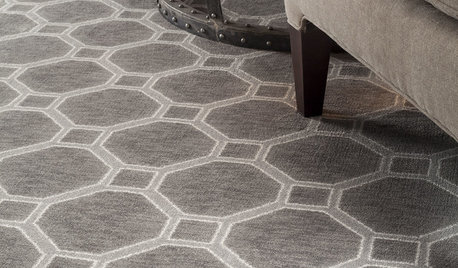

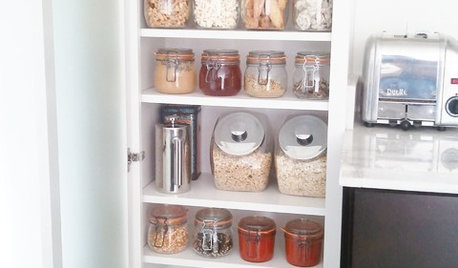

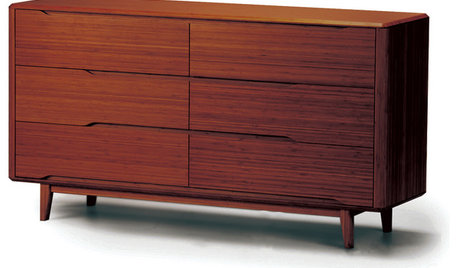
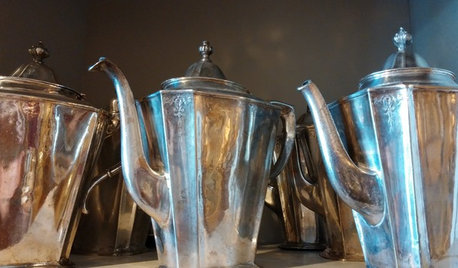
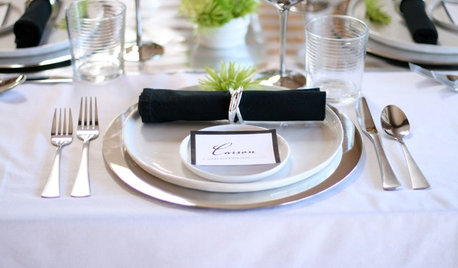
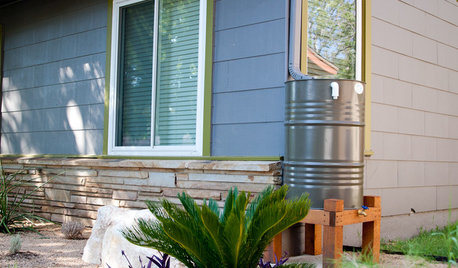







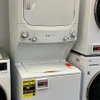

sudsmaster